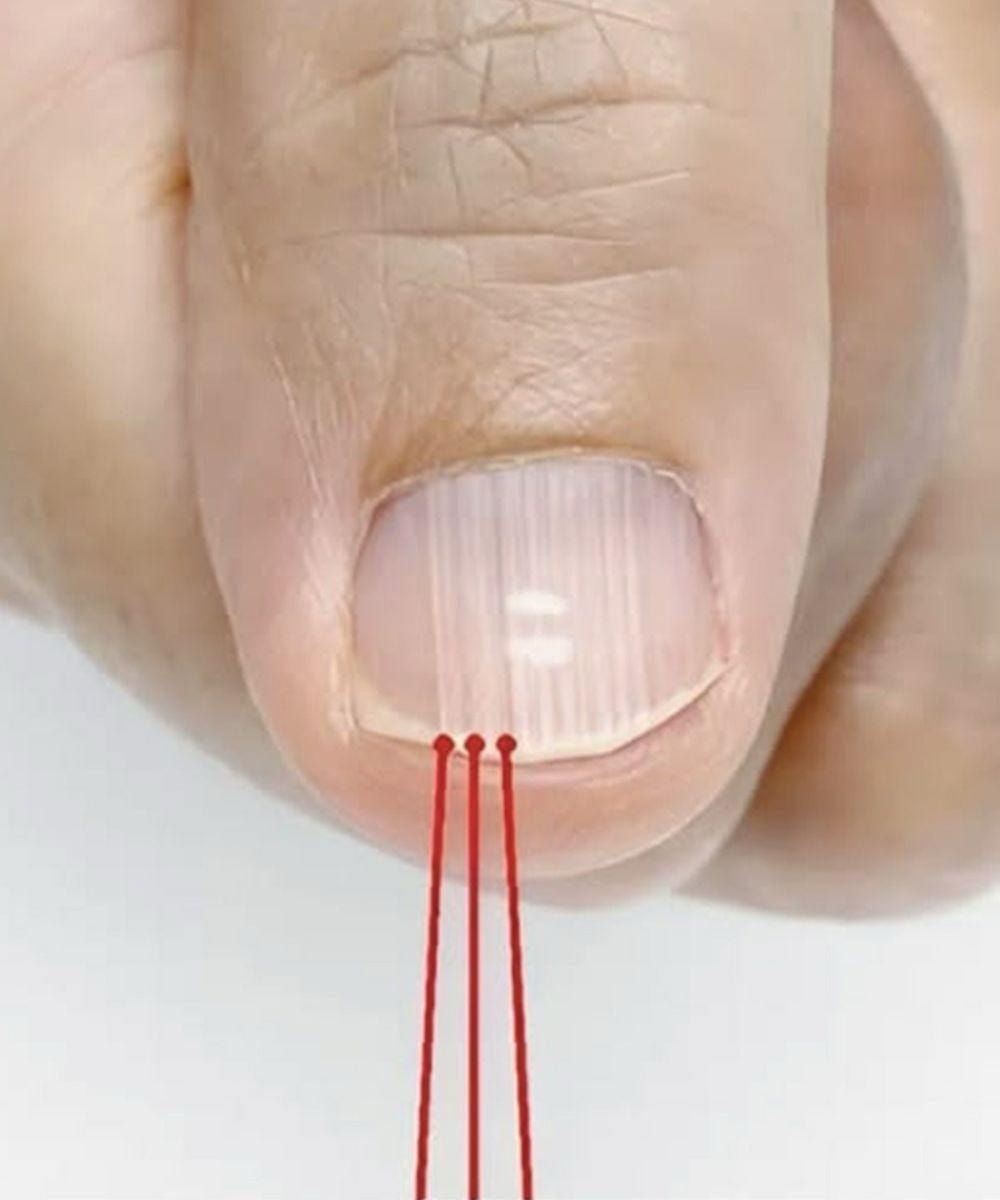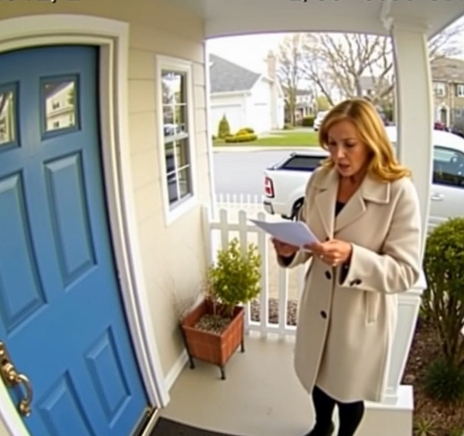
and it would reveal secrets I never imagined my son could have uncovered.
As the car approached, the golden house stood as a beacon, its weather-worn exterior carrying whispers of forgotten tales. I was enveloped in a cascade of memories as I stepped out, the scent of lavender and pine filling the air. It was the house where I had spent the most idyllic summers of my youth with Pierre, the first man I ever loved, a love story buried in the sands of time when life had taken us on different paths. To see it now, still standing, was a jolt to my heart.
The driver nodded toward the entrance, and I hesitated before stepping through the threshold. Inside, the past was alive and breathing. The rustic charm was untouched, and the walls seemed to echo with laughter and music from long ago. On a table in the center of the living room lay an envelope with my name in Pierre’s handwriting. My heart raced as I opened it, revealing a letter penned with care and emotion.
“Eleanor,
If you’re reading this, then Richard, our son, kept his promise. When we parted ways, I never stopped loving you. Life took you to Manhattan, and me to these mountains, but the love we shared brought us together in a way neither of us could have predicted.
Richard found me five years ago, a curious man tracing his roots. We spent days talking about you, your courage, and the life you built with him. He was proud of you, as am I. He said you were like a lioness—strong, fierce, and loving.
I wanted him to have a piece of this place, to know where his story began. We worked to restore it, to fill it with the warmth and laughter of family. But now, it is yours. It was always meant to be yours.
Forgive me for not reaching out sooner. Let this place heal the wounds left by time and circumstance.
With all my love,
Pierre”
Tears blurred my vision, and I felt the weight of years lift off my shoulders. Richard had known about Pierre, had known that this piece of my past was where I belonged. The crumpled envelope, the ticket, the journey—it was his way of bringing me home.
Standing in the golden light streaming through the windows, I realized Richard had given me more than just a destination; he’d given me a chance to reconnect with a part of myself I had buried. This house, this land, held the key to my future as much as it did to my past.
I stepped outside into the garden, where the mountains stood sentinel against the sky, and I knew that the door I had once closed was open again, leading me to a path of rediscovery and peace. I could almost hear Richard whisper in the wind, “Mom, you’re home.”
In that moment, I understood that love, in all its forms, is the only legacy that truly matters, and my son had left me the most extraordinary gift of all—a home where my heart could finally rest.

As the officers entered, the air in our home felt impossibly heavy, as if the walls themselves were closing in. Emma clung to me, her small frame racked with sobs, and I could feel her fear like a tangible weight pressing down on my chest. I led the officers into the living room, where the remnants of our dinner still sat on the table. It was surreal, this juxtaposition of mundane normalcy and the chaos beginning to unfold.
The officers took seats across from us, their expressions a blend of professionalism and compassion. The younger one, who introduced himself as Officer Harris, spoke gently, “Mrs. Collins, we need to understand what Emma saw last night. It’s important for everyone’s safety.”
Emma’s grip on my hand tightened. “I heard noises from the garage,” she began, her voice barely above a whisper. “I thought it was raccoons again, but when I looked out my window, I saw Dad. He was… he was dragging something.”
Her words hung in the air, heavy and ominous. My mind raced, trying to reconcile the image of Daniel, my husband of fifteen years, with the horror Emma described. He was the man who read bedtime stories to Emma, who laughed at my terrible jokes, who volunteered at the local clinic on weekends.
“You’re sure it was him?” I asked, desperation creeping into my voice.
Emma nodded, tears streaming down her cheeks. “I saw his face when he looked up. And… and there was something on his hands, something dark.”
My world spun. Could there be an explanation? Some mistake or hallucination? But deep down, in the part of me that mothers always want to trust, I knew Emma wasn’t lying. Her fear was too real, too visceral.
Officer Harris leaned forward. “Mrs. Collins, do you know where your husband is right now?”
“Seattle,” I replied, though uncertainty wove through my words like a thread. “He left yesterday for a conference. He’s supposed to be there until Friday.”
The officers exchanged glances, communicating in that silent way colleagues often do. “We’ll need to check the garage, if that’s alright,” Officer Harris said.
Numbly, I nodded, leading them to the door that opened to the garage. The room was dark, the shadows deep and foreboding. My fingers fumbled for the light switch, and when the fluorescent lights flickered on, they illuminated a scene that stole the breath from my lungs.
There, in the corner, was a large tarp. It was crumpled, as if hastily thrown over something. I moved toward it, but Officer Harris held up a hand, stopping me. “Please, let us handle this.”
They approached the tarp with cautious steps, and as they lifted it, I caught a glimpse of what lay beneath—a pile of rags, stained with something dark and sticky. My heart seized. It was blood. Real, undeniable, and damning.
The older officer, whose name I hadn’t caught, turned to me, his expression grave. “Mrs. Collins, I’m afraid we’ll need to take you and Emma somewhere safe while we investigate further.”
The word “safe” felt foreign, alien in my ears. What did it mean anymore?
I gathered Emma in my arms, her sobs softening to hiccups as I held her close. The officers stepped away to make their calls, leaving us in a bubble of solitude amidst the chaos.
The life I knew was unraveling, each thread plucked by the cold hand of reality. As we waited, surrounded by the detritus of our shattered world, I couldn’t help but wonder—who was the man I married? And what kind of life had we truly been living?
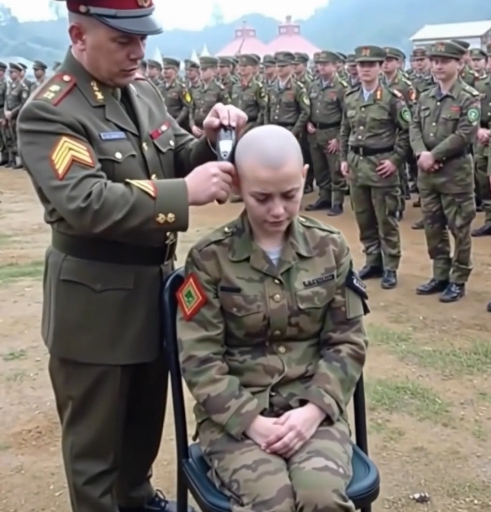
as his eyes caught a glint of something metallic pinned beneath the fallen braid. A badge, half-obscured by the severed hair, caught the light.
His curiosity piqued, Marcus bent down and picked it up. The badge was unmistakable—an insignia awarded only to those who had completed the Army’s most grueling leadership course. It was a badge of honor, a testament to resilience and exceptional skill. It was the kind of badge earned through years of sweat, determination, and sacrifice.
For a moment, Marcus was silent, the weight of his actions sinking in. This wasn’t a mere act of noncompliance; this was a soldier who had achieved more than most in their entire careers. Surprise mingled with a tinge of embarrassment as he realized the significance of the person he had just reprimanded.
“Private Hayes,” he called, his voice notably softer now. “Whose badge is this?”
Alara met his gaze, her eyes unwavering. “It’s mine, sir. Completed the leadership course last year before being reassigned here.”
Marcus felt a shift in the air, a collective holding of breath as the entire platoon awaited his next move. He was known for his strict adherence to rules and his demand for respect, but this was different. This was a moment where respect had to be earned back, not demanded.
“I see,” Marcus said, nodding slowly. He looked at Alara with newfound respect, realizing the irony in the situation. Here he was, lecturing about respect while standing before someone who embodied it through their accomplishments.
“Private Hayes, I apologize,” Marcus said, his voice carrying the gravity of his words. “I failed to recognize your achievements and your commitment to this unit. It was not my intention to undermine that.”
The tension in the air eased, replaced by a sense of camaraderie and understanding. Alara nodded, accepting the apology with the quiet grace of someone who knew her worth.
“Thank you, sir,” she replied, her tone respectful but firm.
Marcus turned to the platoon, addressing them all. “Let this be a lesson for everyone, including myself. Respect isn’t just about following orders or maintaining appearances. It’s about recognizing the value and contributions of each individual, regardless of rank.”
With that, he handed the badge back to Alara, acknowledging her achievement and her place within the team. Alara pinned it back on, the badge now a symbol of her resilience and the newfound respect she had earned from her commanding officer.
As the formation dispersed, whispers of the morning’s events mingled with the crisp air, a reminder to all present of what respect truly looked like. The lesson was clear: next time, remember the person behind the uniform, for their story might just be the very essence of respect itself.
If you’re anything like me, you’ll regularly check your body over for lumps, bumps, bruises and all else that’s out of place. Call me paranoid or overcautious, but I like to know what’s going on with my body, and I like to be ready to seek medical advice if I ever find something that suggests an inexplicable change.
You can imagine my surprise, then, when I found a cluster of red dots on my shoulder one morning. As is so often the way these days, I immediately took to the internet to see what I could find in the way of an explanation.
And it turns out red dots on the skin aren’t all that uncommon. In fact, there’s a number of causes, so I thought it would be helpful to list them here for anyone who might find themselves in the same situation.
Now, it’s important to note that red dots on the skin can come in a number of sizes, shapes and hues, and what they denote can be equally broad. Some are completely harmless; others can have potentially serious causes.
Red dots on the skin can result from various causes—some harmless, others needing medical attention.
You can imagine my surprise, then, when I found a cluster of red dots on my shoulder one morning. As is so often the way these days, I immediately took to the internet to see what I could find in the way of an explanation.
And it turns out red dots on the skin aren’t all that uncommon. In fact, there’s a number of causes, so I thought it would be helpful to list them here for anyone who might find themselves in the same situation.
Now, it’s important to note that red dots on the skin can come in a number of sizes, shapes and hues, and what they denote can be equally broad. Some are completely harmless; others can have potentially serious causes.
Red dots on the skin can result from various causes—some harmless, others needing medical attention.

My son had just found something strange on his neck. He touched the base of it, frowned, and asked me, “Why is there a little lump here?” It wasn’t dramatic or painful, but the moment he said it, everything around me seemed to pause. Once you see a small swelling in that area, you can’t simply forget it or hope it disappears on its own. That was the moment I realized how many parents, adults, and even teenagers overlook early signs of thyroid changes until someone else points them out.
That quiet discovery became the beginning of my search to understand goiter, a condition that often appears with no warning and no pain. It can develop slowly, subtly, and without any sign except a change in the neck’s appearance. The goal of this article is to offer a clear, safe, non-alarming guide to what a goiter is, what symptoms matter, and when it’s time to seek proper medical advice.
A goiter is the enlargement of the thyroid gland, a small butterfly-shaped organ that sits just below the Adam’s apple. This gland plays an essential role in controlling metabolism, body temperature, heart rate, growth, and several hormone interactions. When the thyroid grows irregularly—whether evenly or in the form of nodules—it becomes noticeable as a swelling at the front of the neck.
For many people, this swelling is the only visible sign. Goiters can occur even when thyroid hormone levels are completely normal. But in other cases, the enlargement comes from an underactive or overactive thyroid, each with its own set of symptoms.
When the thyroid becomes underactive, a condition known as hypothyroidism, the body’s systems tend to slow down. People may experience fatigue, sensitivity to cold, dry skin, muscle weakness, constipation, or issues with concentration and memory. These symptoms are often dismissed as stress or lifestyle factors until a neck swelling prompts a closer look.

When the thyroid becomes overactive, known as hyperthyroidism, the opposite happens. The body speeds up, which can lead to weight loss, a rapid heartbeat, heat intolerance, increased sweating, tremors, irritability, nervousness, frequent bowel movements, or difficulty sleeping. Women may also notice menstrual changes. Children can show even more distinct signs such as rapid height growth or shifts in behavior because thyroid hormones influence development.
In some cases, a goiter becomes large enough to affect nearby structures. When it presses on the airway or esophagus, a person may experience difficulty swallowing, hoarseness, snoring, coughing, or shortness of breath during physical activity. These symptoms do not always appear, but when they do, they are an important signal to seek medical evaluation.
To understand why a goiter develops, it helps to understand how the thyroid is regulated. The gland produces two hormones that affect nearly every cell in the body: thyroxine (T4) and triiodothyronine (T3). These hormones help control metabolism, temperature, blood pressure, and growth. The thyroid also produces calcitonin, which plays a role in regulating calcium levels.
The brain works closely with the thyroid to maintain balance. The hypothalamus sends signals to the pituitary gland, which releases thyroid-stimulating hormone (TSH). When TSH rises, the thyroid produces more hormones. When hormone levels climb too high, TSH decreases. If the thyroid struggles to produce enough hormones, TSH rises in response, and this constant stimulation can cause the gland to enlarge over time.
There are several common causes of goiter. Worldwide, the main cause is iodine deficiency. Iodine is essential for producing thyroid hormones, and when the body lacks it, the thyroid grows in an attempt to compensate. In countries that use iodized salt, this cause is rare.
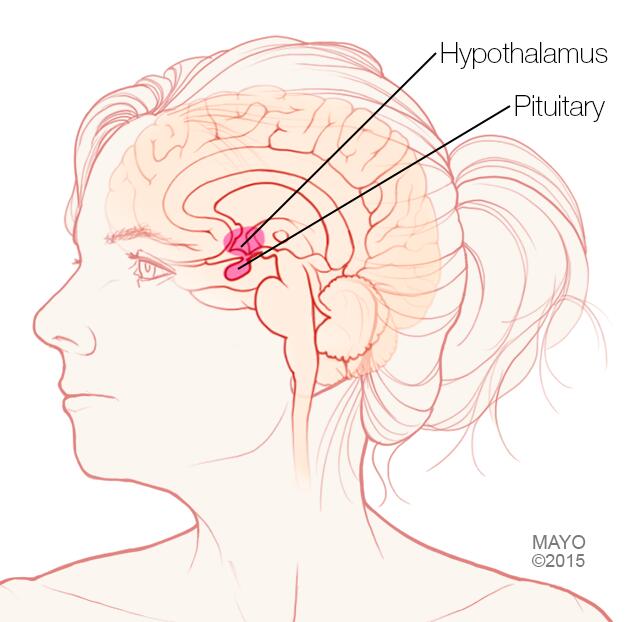
Autoimmune conditions are also significant contributors. Hashimoto’s thyroiditis occurs when the immune system attacks the thyroid, damaging tissue and leading to hypothyroidism. As the gland becomes less efficient, TSH rises, causing the thyroid to grow. Graves’ disease is another autoimmune disorder where the immune system mistakenly produces a protein that behaves like TSH, overstimulating the gland and causing hyperthyroidism and enlargement.
Thyroid nodules, which are lumps that form inside the gland, are another common cause. A person may develop one or several nodules, and while most are benign, they still contribute to overall thyroid enlargement. Thyroid cancer accounts for only a small portion of nodules, around 5 percent, and most cases are treatable when detected early.

Other causes include pregnancy, where elevated levels of certain hormones may temporarily stimulate the thyroid, and inflammation known as thyroiditis, which can be triggered by autoimmune conditions, viral infections, or medications. Inflammation may cause temporary shifts in hormone levels and visible enlargement.
Anyone can develop a goiter, but certain factors increase the risk. These include low dietary iodine, female gender, pregnancy, menopause, age over 40, family history of thyroid disorders, certain medications such as lithium or amiodarone, and previous radiation exposure to the head or neck.
A goiter itself is not always dangerous. Many people live with small, non-symptomatic goiters that never require treatment. However, a larger goiter can interfere with breathing or swallowing, alter hormone levels, or affect confidence due to changes in appearance. The best way to evaluate a goiter is through medical consultation, hormone testing, and imaging such as ultrasound.
Looking back at the moment my son asked me about the small lump on his neck, I realize how easy it would have been to dismiss it. Children grow quickly, bodies change, and most of us assume small irregularities will resolve on their own. But early attention helps bring clarity, reassurance, and, when needed, appropriate treatment. Understanding what a goiter is allows families to respond with knowledge rather than worry.
If you or someone you care about notices a similar swelling, the most practical steps are simple. Schedule a medical evaluation, check thyroid hormone levels such as TSH, T3, and T4, and consider an ultrasound if recommended. These steps help determine whether the goiter is harmless, related to hormone changes, or connected to another underlying condition.
Thyroid health is deeply tied to energy, mood, metabolism, and overall well-being. Paying attention to subtle signs—like a small neck swelling—can make a meaningful difference. The thyroid is a small gland, but its impact on the body is significant. Understanding it is the first step toward protecting long-term health.

Nail Ridges After 40: A Common But Overlooked Sign of Aging
As people age, they often notice changes in skin, hair, and joints—but fingernails also undergo transformation. One of the most common and visible changes after age 40 is the appearance of vertical lines or ridges on the nails. These ridges, known medically as longitudinal striations, run from the base of the nail (near the cuticle) to the tip. While usually harmless, they can sometimes hint at deeper health or nutritional concerns.
Understanding what these lines mean, what causes them, and how to respond is key to maintaining not just nail health but overall well-being.
What Are Vertical Nail Ridges?

Vertical ridges are linear elevations that extend from the cuticle to the tip of the nail. They are distinct from horizontal ridges (Beau’s lines), which are more often associated with serious systemic stress or illness.
In many cases, vertical ridges are simply a normal sign of aging, much like wrinkles or graying hair. However, changes in the depth, number, or texture of these ridges can indicate underlying issues that warrant attention.
Why Vertical Ridges Appear More Prominently After Age 40

Structural Changes in the Nail Matrix
The nail matrix, located beneath the cuticle, is where nail growth begins. As a person ages, the efficiency of cell turnover in the nail matrix slows down. This results in inconsistent production of keratin—the primary structural protein of the nail—leading to uneven surfaces or ridging.
Reduced Keratin Production
Keratin production slows with age due to changes in hormone levels, slower metabolism, and general wear and tear. This makes the nail plate thinner and more likely to develop surface irregularities.
Loss of Moisture and Oil
Natural oils and moisture in the nail bed help keep nails smooth and pliable. With age, sebaceous gland activity decreases, leading to drier nails. Dehydrated nails tend to show ridges more prominently.
External Exposures Accumulate Over Time
Decades of exposure to handwashing, cleaning agents, manicures, and environmental stressors can compound over time, gradually weakening the nail plate and accentuating ridges.
Nutritional Deficiencies That May Contribute to Nail Ridges

As the body ages, nutrient absorption becomes less efficient, even with a balanced diet. Several vitamins and minerals directly influence nail health:
Biotin: A B-complex vitamin essential for keratin infrastructure. Low biotin can cause brittle, ridged nails.
Iron: Deficiency may lead to spoon-shaped nails or ridging. Iron is critical for oxygen transport and cellular repair.
Zinc: Important for tissue growth and repair. A lack of zinc can result in white spots or ridged nails.
Magnesium: Supports protein synthesis and nail integrity.
People over 40 are more likely to have subclinical deficiencies due to digestive inefficiencies, medication interference, or dietary gaps.
When Vertical Ridges Could Indicate an Underlying Health Problem

While mild ridges are often harmless, sudden changes in nail appearance should be taken seriously. Medical evaluation may be necessary if any of the following symptoms accompany nail ridges:
Discoloration (yellow, brown, or black streaks)
Changes in nail thickness
Pain, inflammation, or redness near the cuticle
Nail separation from the nail bed
Frequent nail splitting or crumbling
Potential health conditions that may manifest in nail changes include:
Thyroid disorders: Both hypothyroidism and hyperthyroidism can alter nail texture and growth patterns.
Rheumatoid arthritis: May cause distorted nail growth or chronic inflammation in nail tissues.
Peripheral vascular disease: Poor blood flow can affect nail health and cause pronounced ridges.
Psoriasis or eczema: Skin disorders often involve nail abnormalities.
Anemia or malnutrition: Long-term deficiencies affect nail strength and resilience.
Are Horizontal Ridges More Concerning?
Yes. Horizontal ridges (Beau’s lines) typically reflect a disruption in nail production due to systemic stress. Causes include:
Severe infections or illness
Chemotherapy
High fever
Uncontrolled diabetes
Physical trauma to the nail matrix
Unlike vertical ridges, which develop gradually, horizontal ridges often emerge abruptly and are more directly linked to specific health events.
Best Practices for Nail Health After 40
Hydration and Moisture Retention
Daily moisturizing is critical. Use hand creams and cuticle oils to prevent drying. Ingredients like shea butter, vitamin E, and lanolin help lock in moisture.
Nutrient-Rich Diet
A balanced diet that includes leafy greens, lean proteins, nuts, seeds, eggs, and legumes can help support healthy nail growth. Foods rich in biotin, zinc, and magnesium are especially important.
Consider Supplements
If your diet is limited or you suspect deficiencies, consult your healthcare provider about supplements. Biotin, iron, and collagen are commonly recommended, but testing is advised before supplementation.
Minimize Damage
Avoid nail biting and picking
Limit use of harsh nail polish removers
Don’t use nails as tools (e.g., opening cans)
Wear gloves when cleaning or gardening
Nail Care Routine
Keep nails trimmed to avoid snagging
Gently file in one direction instead of sawing back and forth
Avoid acrylics or gel nails that require aggressive removal processes
Frequently Asked Questions (FAQ)
Can vertical ridges be completely removed?
No, if they’re age-related, they can’t be “cured.” However, hydration, nutrition, and gentle care can reduce their appearance.
Do vertical ridges mean I have cancer or a serious disease?
Not usually. Isolated ridging is rarely linked to cancer. Sudden or dramatic changes should be evaluated, but ridges alone are typically benign.
Should I buff ridged nails to make them smooth?
Buffing can temporarily smooth the nail, but excessive buffing thins the nail plate and increases breakage. Do it sparingly and with gentle tools.
Does nail polish make ridges worse?
No, but frequent use of acetone-based removers can dry the nails and accentuate ridges. Use polish moderately and opt for hydrating base coats.
Final Thoughts
Vertical ridges on the nails after age 40 are extremely common and generally harmless. They reflect the natural aging process, shifts in nutrient absorption, and years of environmental exposure. While they’re often nothing to worry about, paying attention to your nails is one more way to monitor your internal health.
By maintaining good hydration, eating a nutrient-dense diet, practicing gentle nail care, and staying alert to changes in texture, you can preserve the strength and appearance of your nails well into later life.
If you’re ever unsure whether a change in your nails is normal, don’t hesitate to seek medical advice. Your body has many ways of communicating with you—your nails are just one more voice in the conversation.
From Derek, Mom, and even Dad, all trying to downplay the previous night’s events. They were full of excuses and half-hearted apologies, but I didn’t care to respond. Instead, I focused on Lucas, who was still sniffling, eyes red from crying himself to sleep. I made him breakfast, trying to infuse some normalcy into a day that felt anything but. As he ate, I promised him we’d replace the toys, but the truth is, replacements are never the same. Memories are tied to those items, emotions woven into their threads and plastic.
Later, as Lucas played quietly in his room with the few toys that had survived, the doorbell rang. I opened it to find Dad standing there, looking uncharacteristically anxious.
“Please,” he said, his voice unsteady, “you have to talk to your brother. He’s in trouble at work—about to lose his job. I know you two had a falling out, but he needs your help.”
I met his gaze steadily. “Oh, I know,” I said softly, a small, ironic smile playing on my lips. “That was the plan.”
Dad blinked, taken aback. “What do you mean?”
“It means,” I explained, “that Derek’s behavior has consequences. He thought he could act without repercussions, but maybe now he’ll understand that his actions have weight.”
“You can’t just stand by and do nothing. You’re his brother!”
“Am I?” I countered, the sting of last night still fresh. “Last night, you all made it clear where I stand in this family. I’m just the soft one, remember? But maybe soft isn’t so bad if it means I don’t hurt others for fun.”
Dad was silent, struggling for words. He was caught in a web of his own making, unable to support Derek without acknowledging the toxic traits he had encouraged in his sons.
“Look, I’ll talk to him,” I said finally. “Not because you asked, but because it’s the right thing to do. For Lucas. He deserves to know that people can change, that people can grow.”
Dad nodded, relief washing over his features. “Thank you, Virgil.”
I closed the door, my mind already planning my conversation with Derek. It would be a difficult one, but necessary. As I walked back to Lucas’s room, I felt a sense of clarity.
Later that afternoon, I called Derek and arranged to meet. When we sat down at the café, I could tell he was on edge, but still trying to maintain his bravado.
“You really doing this to me, Virge?” he started, but I cut him off.
“This isn’t about you losing your job. It’s about understanding why you’re in this position. Last night wasn’t just about some toys. It was about respect and understanding. You want to be the tough guy? Fine. But real strength is knowing when to be gentle.”
He looked away, jaw clenched. “And what if I don’t want to change?”
“Then you’ll keep losing the things that matter,” I replied, standing up to leave. “Think about it, Derek.”
I walked away, hoping my brother would realize that true toughness is about resilience, compassion, and, most importantly, the courage to change. As I headed home to Lucas, I felt a flicker of hope that maybe, just maybe, Derek would find his way back to being a brother I could respect.
Later, as Lucas played quietly in his room with the few toys that had survived, the doorbell rang. I opened it to find Dad standing there, looking uncharacteristically anxious.
“Please,” he said, his voice unsteady, “you have to talk to your brother. He’s in trouble at work—about to lose his job. I know you two had a falling out, but he needs your help.”
I met his gaze steadily. “Oh, I know,” I said softly, a small, ironic smile playing on my lips. “That was the plan.”
Dad blinked, taken aback. “What do you mean?”
“It means,” I explained, “that Derek’s behavior has consequences. He thought he could act without repercussions, but maybe now he’ll understand that his actions have weight.”
“You can’t just stand by and do nothing. You’re his brother!”
“Am I?” I countered, the sting of last night still fresh. “Last night, you all made it clear where I stand in this family. I’m just the soft one, remember? But maybe soft isn’t so bad if it means I don’t hurt others for fun.”
Dad was silent, struggling for words. He was caught in a web of his own making, unable to support Derek without acknowledging the toxic traits he had encouraged in his sons.
“Look, I’ll talk to him,” I said finally. “Not because you asked, but because it’s the right thing to do. For Lucas. He deserves to know that people can change, that people can grow.”
Dad nodded, relief washing over his features. “Thank you, Virgil.”
I closed the door, my mind already planning my conversation with Derek. It would be a difficult one, but necessary. As I walked back to Lucas’s room, I felt a sense of clarity.
Later that afternoon, I called Derek and arranged to meet. When we sat down at the café, I could tell he was on edge, but still trying to maintain his bravado.
“You really doing this to me, Virge?” he started, but I cut him off.
“This isn’t about you losing your job. It’s about understanding why you’re in this position. Last night wasn’t just about some toys. It was about respect and understanding. You want to be the tough guy? Fine. But real strength is knowing when to be gentle.”
He looked away, jaw clenched. “And what if I don’t want to change?”
“Then you’ll keep losing the things that matter,” I replied, standing up to leave. “Think about it, Derek.”
I walked away, hoping my brother would realize that true toughness is about resilience, compassion, and, most importantly, the courage to change. As I headed home to Lucas, I felt a flicker of hope that maybe, just maybe, Derek would find his way back to being a brother I could respect.
We have this false belief (at least in the back of our heads) that we can live forever. But sometimes life throws a curve ball that we’ve never expected.
On a regular Sunday morning, Ryan Finley woke up, took a wide stretch and pinched his wife, Jill Finley to wake her up as well.
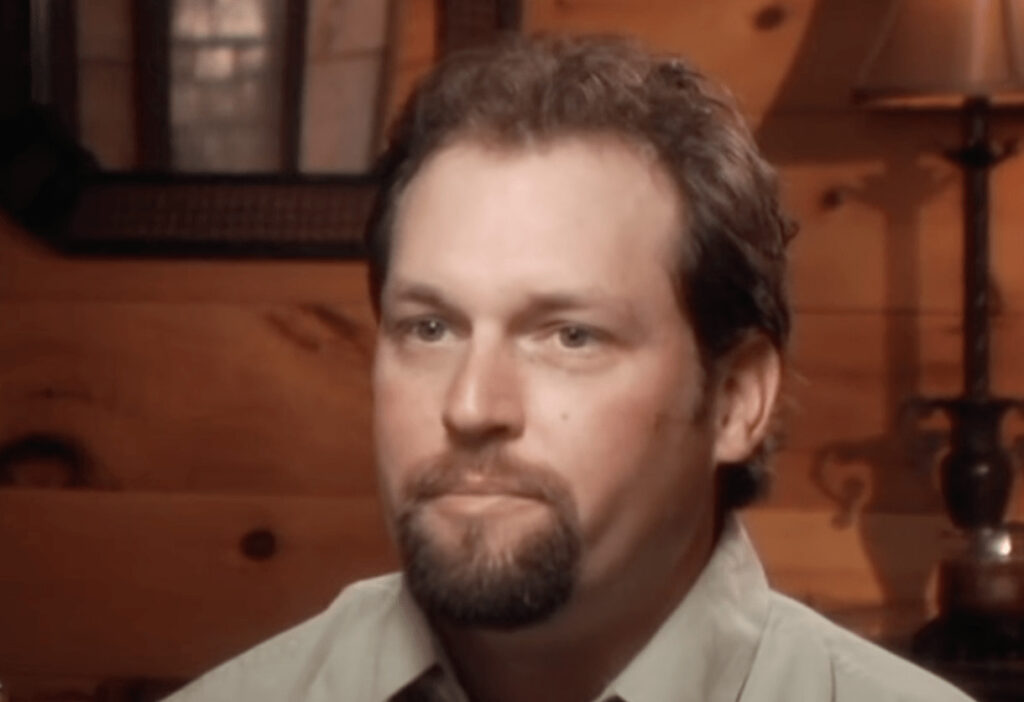
“I went to wake Jill up, which is a miracle in itself as I never, ever, do that on Saturday mornings,” he later recalled.
He called but she didn’t respond. That’s when Ryan’s pulse started to race. He knew something was not right. He immediately called emergency and performed CPR on his wife.
When paramedics arrived they immediately took her to the hospital, with Ryan driving behind it.
After medical checkup, they made a conclusion that Jill suffered a cardiac arrest.
She got a medical procedure done to stabilize her, while Ryan was waiting impatiently outside the ER.
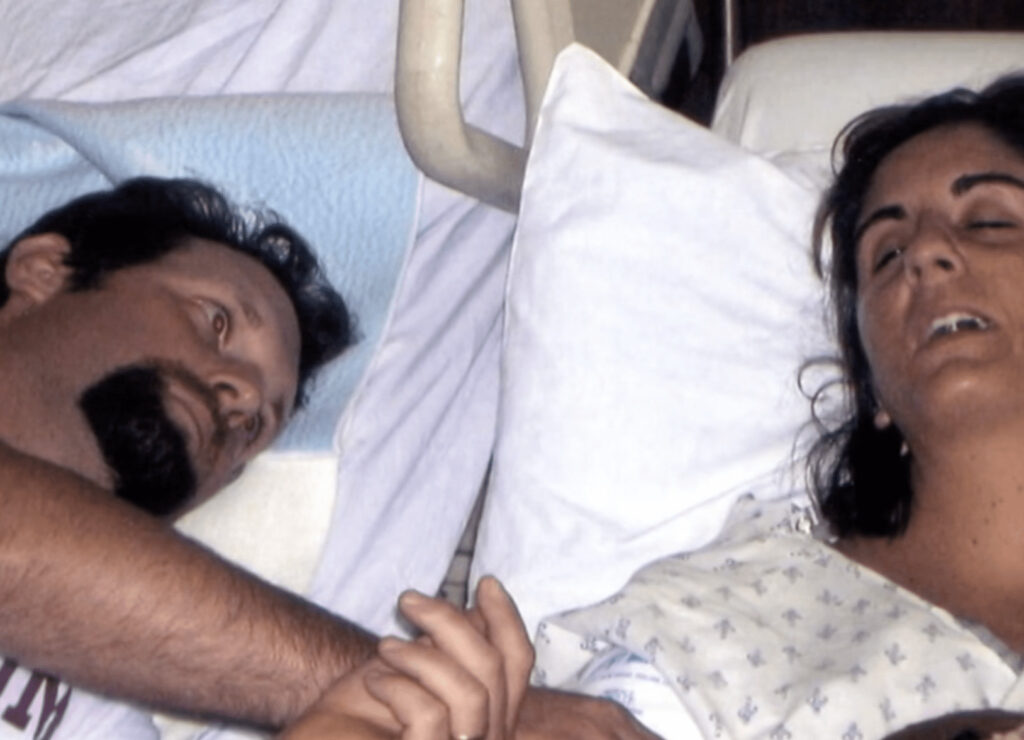
When doctors came out to tell him an update, they finished with “pray for your wife.” Ryan knew when someone tells you that it’s life and death. “When a doctor tells you, you need to start praying, I feel it’s about as serious as it’s going to get.”
Soon after, they informed Ryan that his wife was in a coma.
He just couldn’t fathom the fact that his 31-year-old wife that was alive and well yesterday, now battles with life and death situation…
During the two weeks, Jill was in a coma and got a lot of visitors praying that she would soon wake up and be well. But one day Jill’s cousin came with a Bible in his hand and read to Jill from the Bible for an hour.
He left the Bible to Ryan and told him to read any passages from it if he felt like it.
Ryan made it as a routine to read passages out loud to his wife with high hope that she’d wake up soon.
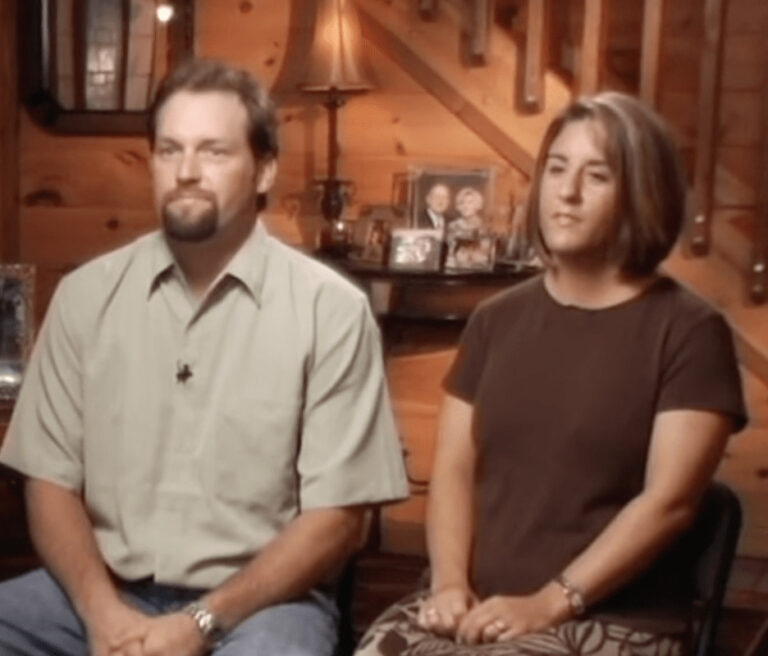
After 11 days, Ryan went home to think about whether to wait for his life or put her off of life support as doctors suggested. Doctors were sure there would be no improvement…
He knew that once they took her off life support, she would pass away shortly. On the 14th day he made the choice to take her off life support and let her go…
About 5 hours when she was removed from life-support, Jill started to mumble and move. Ryan was heartbroken to be present on scene while she suffered and stepped out until she passed away.
He recalls the next moments clearly, “The nurse came out and said, ‘I think you need to come in, she’s talking.’”
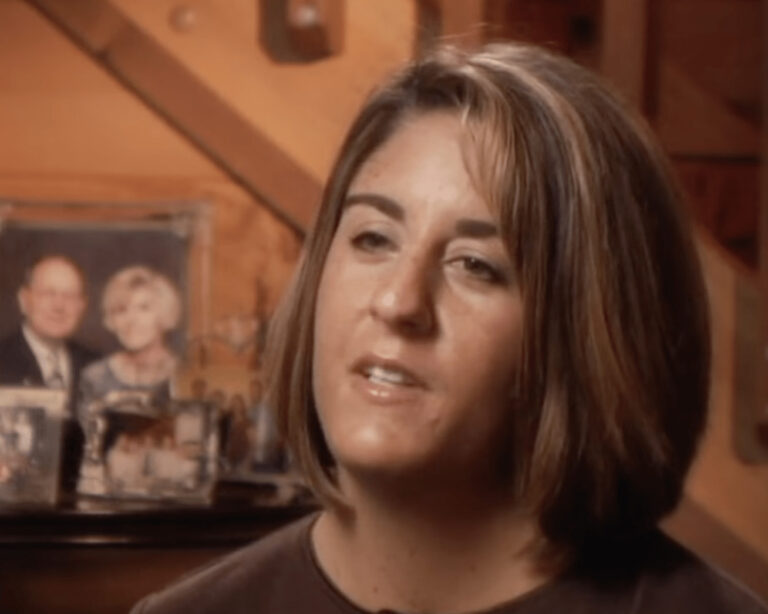
He went in expecting to have the final words as she enters the spiritual realm, but as he walked in he recalls the shock “I walked in and Jill was talking. First thing she said was, ‘Get me out of here. I want to go home.’”
Ryan couldn’t process the situation, he shook his head in disbelief.
He thought she was just mumbling, but then he asked her about their pets’ names and few mental math questions, all of which she answered without an error.
She even asked to go to her favorite Mexican restaurant for dinner. He then knew Jill wasn’t going to the spiritual world… she was coming back home with him.
Ryan was asked what brought his wife back and he replied back without hesitation: “God. Divine intervention. I honestly feel that way.”
It wasn’t as if Jill went back to normal the next day. She had to learn how to brush her teeth again and tie her shoe laces due to decline on some of her motor skills.
But after God gave them a second chance they made sure they would ALWAYS be next to each other, especially when they need it most.
Jill also supports his decision to take her off life support when she was in a coma, as she doesn’t want to spend her life as a “vegetable.”
Ryan says: “there’s still not a night that goes by that I don’t wake up. I’ll usually kick her and if she kicks me back, I know we’re OK.”
We are so happy that both Ryan and Jill Finley are both well and next to each other at all times!
On a regular Sunday morning, Ryan Finley woke up, took a wide stretch and pinched his wife, Jill Finley to wake her up as well.

“I went to wake Jill up, which is a miracle in itself as I never, ever, do that on Saturday mornings,” he later recalled.
He called but she didn’t respond. That’s when Ryan’s pulse started to race. He knew something was not right. He immediately called emergency and performed CPR on his wife.
When paramedics arrived they immediately took her to the hospital, with Ryan driving behind it.
After medical checkup, they made a conclusion that Jill suffered a cardiac arrest.
She got a medical procedure done to stabilize her, while Ryan was waiting impatiently outside the ER.

When doctors came out to tell him an update, they finished with “pray for your wife.” Ryan knew when someone tells you that it’s life and death. “When a doctor tells you, you need to start praying, I feel it’s about as serious as it’s going to get.”
Soon after, they informed Ryan that his wife was in a coma.
He just couldn’t fathom the fact that his 31-year-old wife that was alive and well yesterday, now battles with life and death situation…
During the two weeks, Jill was in a coma and got a lot of visitors praying that she would soon wake up and be well. But one day Jill’s cousin came with a Bible in his hand and read to Jill from the Bible for an hour.
He left the Bible to Ryan and told him to read any passages from it if he felt like it.
Ryan made it as a routine to read passages out loud to his wife with high hope that she’d wake up soon.

After 11 days, Ryan went home to think about whether to wait for his life or put her off of life support as doctors suggested. Doctors were sure there would be no improvement…
He knew that once they took her off life support, she would pass away shortly. On the 14th day he made the choice to take her off life support and let her go…
About 5 hours when she was removed from life-support, Jill started to mumble and move. Ryan was heartbroken to be present on scene while she suffered and stepped out until she passed away.
He recalls the next moments clearly, “The nurse came out and said, ‘I think you need to come in, she’s talking.’”

He went in expecting to have the final words as she enters the spiritual realm, but as he walked in he recalls the shock “I walked in and Jill was talking. First thing she said was, ‘Get me out of here. I want to go home.’”
Ryan couldn’t process the situation, he shook his head in disbelief.
He thought she was just mumbling, but then he asked her about their pets’ names and few mental math questions, all of which she answered without an error.
She even asked to go to her favorite Mexican restaurant for dinner. He then knew Jill wasn’t going to the spiritual world… she was coming back home with him.
Ryan was asked what brought his wife back and he replied back without hesitation: “God. Divine intervention. I honestly feel that way.”
It wasn’t as if Jill went back to normal the next day. She had to learn how to brush her teeth again and tie her shoe laces due to decline on some of her motor skills.
But after God gave them a second chance they made sure they would ALWAYS be next to each other, especially when they need it most.
Jill also supports his decision to take her off life support when she was in a coma, as she doesn’t want to spend her life as a “vegetable.”
Ryan says: “there’s still not a night that goes by that I don’t wake up. I’ll usually kick her and if she kicks me back, I know we’re OK.”
We are so happy that both Ryan and Jill Finley are both well and next to each other at all times!

A somber shadow has fallen over the palace. Just as the Royal Family seemed to be finding moments of joy, a devastating announcement has sent shockwaves through the nation — and the world.Court sources describe the atmosphere at Buckingham Palace as “heavy, almost unbearable.” Flags are at half-mast, and official engagements have been quietly cancelled. The news, delivered in hushed tones to senior royals, has left even the most stoic among them visibly shaken.
Though details remain tightly guarded, insiders confirm this is the most heartbreaking development the family has faced in 2025. “We’ve weathered storms before,” one palace aide told The Daily Gazette, “but this is different… this is personal.”
In a rare moment of public vulnerability, King Charles was seen leaving a private meeting with red-rimmed eyes, his usual composure replaced by a solemn stillness. Queen Camilla, ever the pillar beside him, clutched his arm tightly as they departed together without speaking to reporters.
The reaction inside the royal circle has been equally poignant. Prince William reportedly cut short an overseas engagement, while Princess Catherine has remained out of the public eye entirely. Prince Harry, informed while abroad, is said to be making arrangements to return to the UK “as soon as possible.”
Even palace staff, often accustomed to navigating royal drama, appear subdued. “There’s no gossip, no whispers in the halls,” one footman confided. “Everyone is just… quiet.”Public speculation is mounting. Social media feeds are ablaze with theories, from health concerns to deeply personal family matters. The hashtag #RoyalSadness has trended worldwide within hours of the news breaking.
But amid the mystery, one truth is clear: whatever has happened has struck at the very heart of the monarchy.
An official statement is expected within the coming days, though courtiers warn it may only confirm what insiders already fear — that this is a loss the family will carry for years to come.
For now, the palace gates remain closed, the royal balcony empty, and the streets outside unusually still. A nation waits, holding its breath, bracing for words it does not want to hear.
Because this is not just another chapter in the saga of the royals. This is the story — the one that will define the year… and perhaps change the family forever.
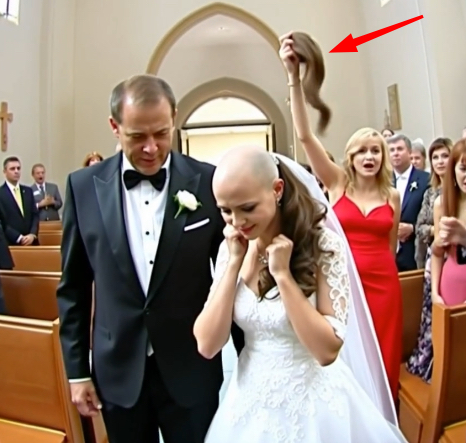
The room fell silent as if time itself had paused to witness the aftermath of my mother-in-law’s cruel act. My heart pounded in my chest, the sound almost deafening in the quiet that enveloped us. Tears streamed down my face, mingling with the shock and humiliation that coursed through my veins. I could see the guests shifting awkwardly, unsure of how to react to such an unexpected display of malice.
But then, from amidst the stunned crowd, a voice broke the silence. It was my childhood friend, Lucy, who had flown in from across the country to be there on my special day. Her voice was strong and unwavering as she addressed the room.
“Is this really what we’ve come to celebrate?” she asked, her tone both accusatory and supportive. “This is a wedding, a union of love and strength. And in front of us stands a woman who has shown more courage and resilience than most of us can imagine.”
Her words struck a chord, resonating through the crowd. People began to nod, murmur in agreement, and a sense of unity slowly began to replace the awkward tension. The groom, my beloved partner who had stood by me through every challenge, turned to face the guests.
“This is the woman I love,” he said, his voice steady and filled with conviction. “She is my strength, my inspiration, and the person I want to spend the rest of my life with. Her courage and battle against cancer only make her more beautiful in my eyes.”
His unwavering support sent a ripple through the room, and suddenly, something incredible happened. One by one, the guests began to stand in solidarity. Friends, family, even those who had initially laughed now looked at me with admiration. They approached, offering words of support and love, forming a protective circle around us.
And then, unexpectedly, my mother-in-law’s own husband stepped forward. He had been a quiet man, often overshadowed by his wife’s imposing presence, but now he spoke with a quiet authority that commanded attention.
“This is not the way to treat family,” he said, looking directly at his wife. “What you did was wrong, and it’s time to apologize.”
Her expression shifted, the confidence that had fueled her cruel act now replaced by a flicker of doubt and regret. The realization of what she had done, how deeply she had hurt not just me but her son and everyone present, was now dawning on her.
She took a hesitant step forward, her eyes meeting mine. “I… I’m sorry,” she stammered, her voice barely audible. “I shouldn’t have done that.”
In that moment, the power dynamics shifted. She, who had sought to humiliate me, was now seeking forgiveness, redemption in the eyes of her family and the community. I took a deep breath, feeling the strength and love of those around me.
“I forgive you,” I replied softly, not for her sake but for mine. It was a release, a letting go of the hurt, so that the day could be remembered not for her cruelty, but for the love and solidarity that overcame it.
The wedding continued, not as we had planned, but in a way that was infinitely more meaningful. It became a celebration not just of our union, but of the strength and resilience that defines true love and community. And as we danced into the night, I felt a sense of peace, knowing that I was surrounded by people who truly cared.
 Top Video Viral
Top Video Viral

